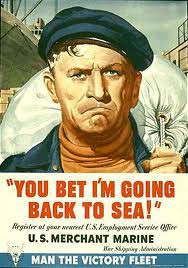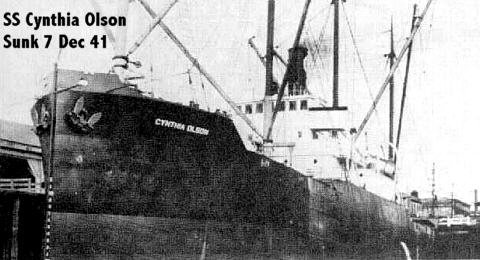
Celebrating Maritime Day in the Month of May
May 22 is National Maritime Day, and a day on which we should all take a moment to thank those who protected our shores. Maritime Day, which first became a national holiday in 1933, is a day of celebration and contemplation for many coastal residents and history buffs, for whom it is as important as President’s Day. It is a day meant to honor Merchant Mariners, at first for their bravery during the American Revolution, and later for their instrumental roles in every single war America has ever fought.
When many of us think of the term “mariner,” we might think of “The Rime of the Ancient Mariner,” one of Samuel Taylor Coleridge’s longest poems, and one of my personal favorites:
“He holds him with his glittering eye— The Wedding-Guest stood still, And listens like a three years’ child: The Mariner hath his will. The Wedding-Guest sat on a stone: He cannot choose but hear; And thus spake on that ancient man, The bright-eyed Mariner. ‘The ship was cheer’d, the harbour clear’d, Merrily did we drop Below the kirk, below the hill, Below the lighthouse top.”
How many of you have felt yourselves transfixed by a mariner with a glittering eye? The life of a mariner, as depicted by Coleridge, was a hard one and one that few would choose. The Merchant Mariners trace their heroic beginnings to the American Revolutionary War, when in 1775 civilians from Machias, Maine, engaged a British warship in battle.
According to “Maine: A Guide Down East,” the Merchant Marines got their start at a port in Maine when the H.M.S. Margaretta arrived in Machias with two sloops – the Unity and the Polly – carrying supplies for British soldiers in Boston. The British found that they were not as welcome as they had hoped. Citizens there had heard of the battles of Concord and Lexington and were in no mood to welcome the British and their supply ships.
According to United States Merchant Mariner history, citizens of Machias decided to strip the sloops of supplies, and then they captured both captains. The remaining British soldiers fled to the Margaretta; while citizens lined the shore yelling, “Surrender to America!”
The British replied, “Fire and be damned!”
Jeremiah O’Brien and forty men armed with guns, swords, and even pitchforks scrambled aboard the Unity and set course for the H.M.S. Margaretta. What few supplies of lumber there were available on the ship were used as defense against cannon fire. However, with out an arsenal aboard, the crew of the Unity slammed into the side of the Margaretta and stormed the ship. Jeremiah O’Brien went on to captain a private ship called the Machias Liberty. He captured two more British schooners and delivered prisoners directly to George Washington in later years.
In 1936 the Merchant Marine Act made all American civilian ships military personnel during times of war. The Merchant Mariners played important roles in WWI, WWII and even the Korean Conflict.
After the attack on Pearl Harbor in 1941, civilian shipping vessels were again called upon to defend America. Merchant Mariners underwent extensive training and faced formidable odds bringing supplies to allied troops. Even here at the coast, local lumber shipping vessels were called to war, defending from San Francisco to Grey’s Harbor and Puget Sound. According to the U.S. Navy, several steam-powered schooners, fishing trawlers, freighters, and even passengers ships out of Oregon were fired upon or lost at sea.
Two ships reported out of Coos Bay that were torpedoed were the S.S. George Olson and the S.S. Cynthia Olson. The War Shipping Administration reports that over 1,500 merchant vessels were sunk during WWII.
President Franklin D. Roosevelt said this of the Merchant Mariners:
“[Mariners] have written one of its most brilliant chapters. They have delivered the goods when and where needed in every theater of operations and across every ocean in the biggest, the most difficult and dangerous job ever undertaken. As time goes on, there will be greater public understanding of our merchant’s fleet record during this war [World War II].”
In 2002, George W. Bush amended the National Maritime Holiday to include Merchant Mariners were instrumental in the Gulf War. According to this amendment, Merchant Mariners who participated in the Gulf War were vital to one of the largest sealift operation since D-Day. Today, there are approximately 450 different Merchant Marine ships still in operation.
The Cannon Beach History Center & Museum will be closed on Maritime Day, but the museum is featuring an exhibit on the U.S.S. Shark and the cannons discovered in 2008. Come celebrate Maritime Day with us early on Monday, May 21!
Information provided by: U.S. Navy, U.S. Merchant Marines (www.usmm.org), WWII Merchant Marine Memorial, U.S. Government, and Maine: A Guide Down East


